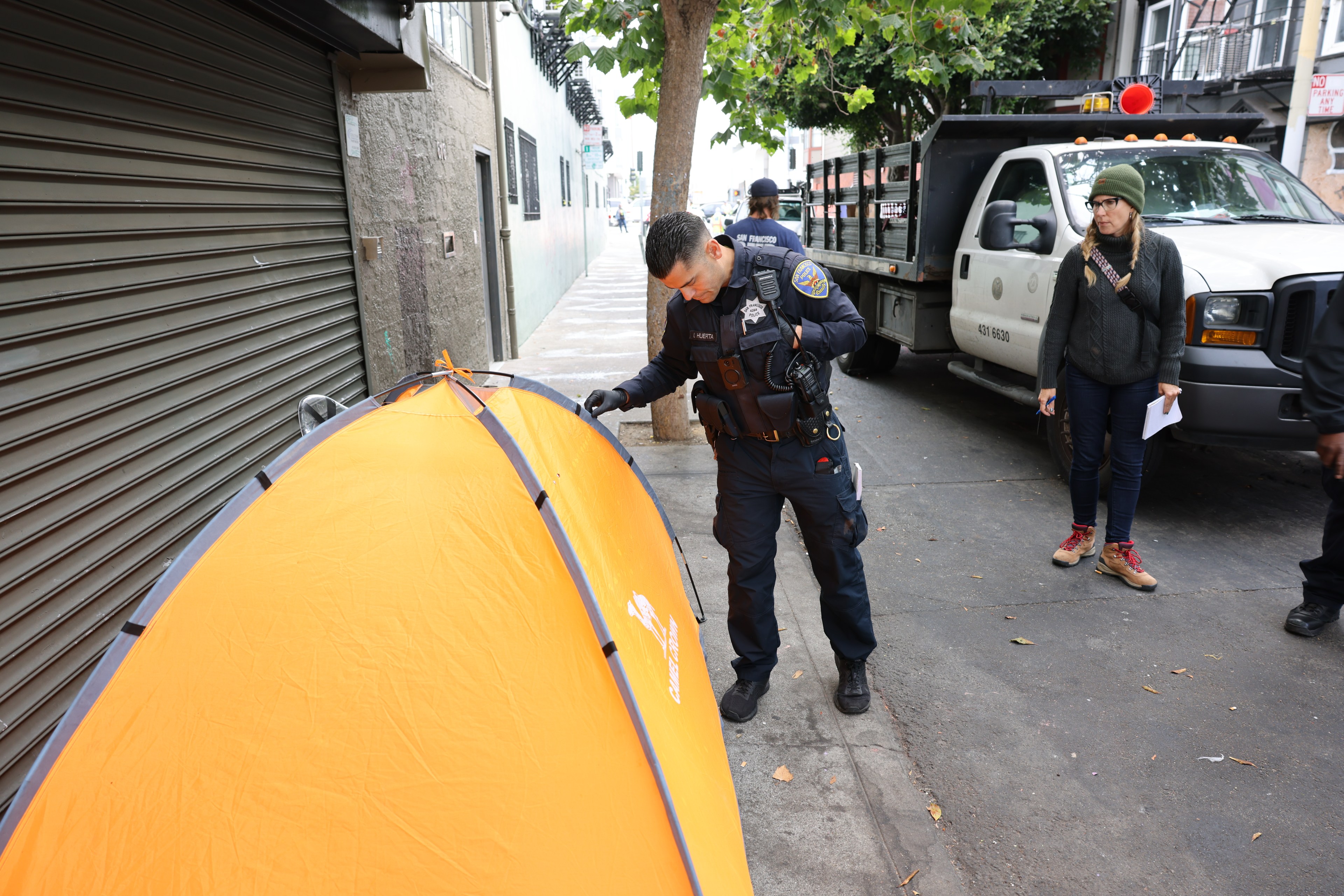Months after a Ninth Circuit Court of Appeals ruling clarified that San Francisco has the right to abate homeless encampments under certain circumstances, a recent citywide count purports to show the largest decrease over a half-year period of residents living in tents and vehicles since the pandemic.
The count found 385 tents at the end of February, a reduction of more than a third since July, according to data provided by the city. Officials also found people living in 616 vehicles, a 42% drop since the summer.
Conducted by the Healthy Streets Operations Center, the data is part of a routine, quarterly operation by the agency to determine the extent of homelessness in the city, though some have criticized the accuracy of similar counting exercises.
Mayor London Breed on Friday attributed the decreases to the city’s efforts in aggressively clearing out encampments, a process that was enabled by a legal ruling last year along with the city’s offers of shelter.
The Healthy Streets Operations Center, a city response team that responds to homeless encampments, conducted 480 operations in 2023 and moved over 1,500 people into shelters, according to the Mayor’s Office.
“Our city workforce is out there every day helping people into shelter and care,” said Breed in a statement. “While we are making progress, we can’t let up. We will continue to offer shelter to those in need, while also using new solutions for those who won’t or can’t accept care. We have the resources, the tools, and the commitment to help people and make a difference in our neighborhoods.”
Breed, who is facing uncertain reelection prospects this November, has taken a harder stance against homelessness and public safety in recent years as public consternation over the issue remains a top political issue. On Monday, the mayor took a swing at harm reduction, a drug intervention strategy that she claims has helped fuel the city’s fentanyl crisis—though advocates maintained the position was purely a political move as the November election nears.
While homeless advocates on Friday said they agreed that there may be a reduction in the number of tents and vehicles, they attributed the decrease to destruction of property by the city.
“Counting tents is a ridiculous way to measure success,” said Jennifer Friedenbach, executive director at the Coalition on Homelessness. “They’re saying, ‘We’re getting people off the streets,’ but then making disparaging comments about homeless people.”
Instead, Friedenbach said the decreasing numbers were thanks to Prop. C, a ballot measure passed in 2018 that utilizes a gross receipts tax rate for businesses and uses the funding for homelessness services.
In the fall, data indicated that homeless residents in San Francisco were moving into shelter at a higher rate than ever before. The city reported in September that during the first six months of 2023, more people entered homeless shelters than in any other half-year span since 2021.
But data at the time also showed a surge in the number of tent encampments—a trend that some blamed on a legal battle that has played out for years between homeless advocates and the city.
The Coalition on Homelessness filed a lawsuit in September 2022 claiming the city was breaking the law by clearing homeless encampments and destroying individuals’ property without offering shelter. Shortly after, U.S. Magistrate Judge Donna Ryu issued a preliminary injunction that restricted the city’s ability to move encampments except in instances of sidewalk cleaning and for right-of-way laws.
But the restrictions on tent abatements were then loosened in the fall, when the Ninth Circuit Court of Appeals determined that the city has the right to clear out tent sites if individuals refuse specific offers of shelter.
The outcome of the suit—and the city’s ability to continue its aggressive stance towards encampment clearing—may largely hinge on an upcoming U.S. Supreme Court decision. This coming June, the high court is expected to review Johnson v. Grants Pass, a case that may determine to what extent municipalities have the right to clear tents.
Last month, a judge in the San Francisco lawsuit approved putting a hold on the case until the Supreme Court weighs in on the issue.
